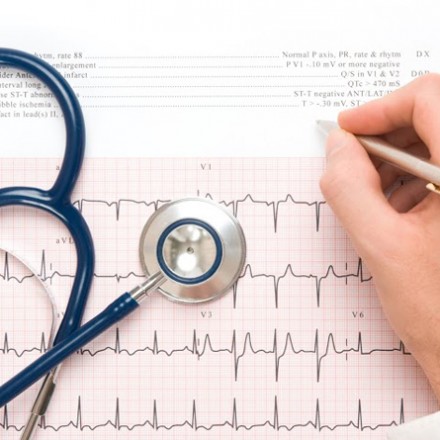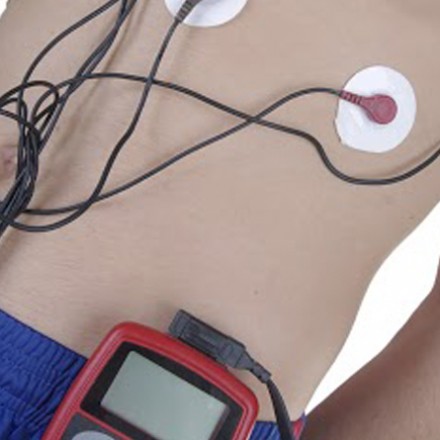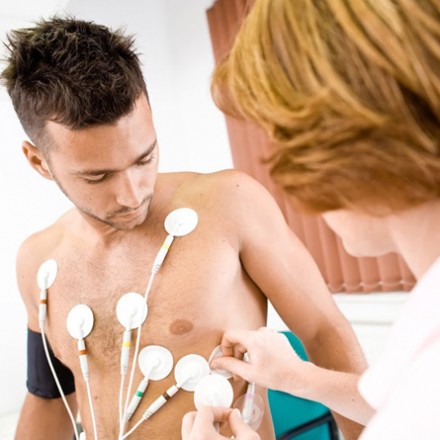An electrocardiogram is a test which checks for problems with the electrical activity of your heart. The information translates in to line tracings on paper. The spikes and dips in the line tracings are called waves.
Cardiology
Cardiology is a branch of medicine dealing with disorders of the heart. The field includes medical diagnosis and treatment of coronary artery disease, heart failure, valvular heart disease and congenital heart defects. Physicians who specialise in this field of internal medicine are called cardiologists. Disorders of the heart can lead to heart disease and cardiovascular disease. As the center focus of…
24hr ECG (Holter) Monitoring
A Holter monitor is a way of taking an ECG continuously for 24 hours or more. An ECG, or electrocardiogram, is an electrical trace of your heartbeat and – in combination with physical examination and other tests – can be an extremely useful test, especially if you suffer symptoms such as palpitations, funny turns, dizziness, blackouts or fainting.
Stress ECG
Exercise testing measures the ability of the heart to function under a gradually increasing load.In most cases, the test is carried out to assist in determining whether or not a patient has coronary artery disease. Less commonly, the test is used to evaluate a patient’s capacity to undertake certain physical activities.
Stress Echocardiogram
Exercise stress echocardiography (ESE) is used to measure how your heart responds to stress, under medically supervised conditions. The test gives us very important information, which we perform ESE if you have suspected coronary artery disease, or if we know you have coronary artery disease but we need more information.
Echocardiogram
An echocardiogram is an ultrasound of the heart. Ultrasound uses sound waves to help doctors see inside the body. It does not hurt or damage the body. During an echocardiogram, a doctor can watch the moving heart while it is beating and see many of its structures working.







Leave a Reply